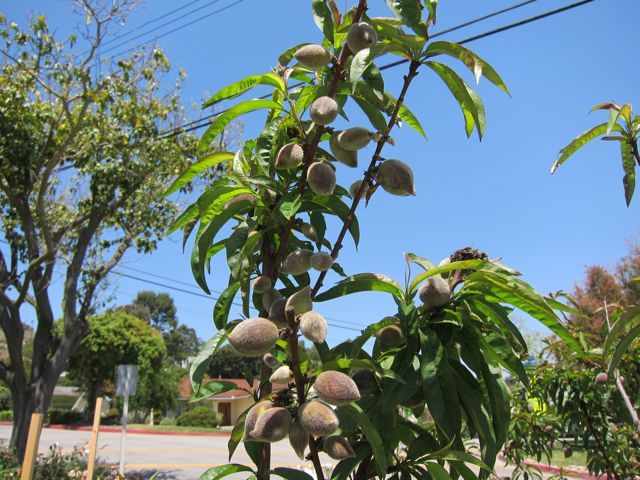 Originally posted at Writeindependent.org on October 30, 2011
Originally posted at Writeindependent.org on October 30, 2011
By David G. Savage, Washington Bureau
Reporting from Tallahassee, Fla.—
Barack Obama may have won this crucial state three years ago on the Sunday before election day when “souls to the polls” drives brought a surge of blacks and Latinos to cast ballots after church.
Florida had opened the polls two weeks early, and even so, long lines across the state prompted the governor to issue an emergency order extending the hours for early voting. Propelled by waves of new voters including college students, Obama eked out a win with 51%.
It will be different next year, a result of changes in the voting laws adopted by the Republican-controlled Legislature.
Early voting was reduced from two weeks to one week. Voting on the Sunday before election day was eliminated. College students face new hurdles if they want to vote away from home. And those who register new voters face the threat of fines for procedural errors, prompting the nonpartisan League of Women Voters to suspend voter registration drives and accuse the Legislature of “reverting to Jim Crow-like tactics.”
What is happening in Florida is part of a national trend, as election law has become a fierce partisan battleground. In states where Republicans have taken majority control, they have tightened rules for registering new voters, reduced the time for casting ballots and required voters to show photo identification at the polls. The new restrictions were usually adopted on party-line votes and signed by Republican governors.
During Florida’s legislative debate on the new law, a Republican state senator argued that it should not be easy or convenient to vote. Voting “is a hard-fought privilege. This is something people died for,” said Sen. Michael Bennett of Bradenton, the chamber’s president pro tempore. “Why should we make it easier?”
Democrats have denounced new restrictions as “voter suppression” laws intended to deter voting by students, the elderly, the poor, the disabled and minorities.
“There has never been in my lifetime, since we got rid of the poll tax and the Jim Crow burdens on voting, the determined effort to limit the franchise that we see today,” former President Clinton told a group of college students in July.
But Reince Priebus, chairman of the Republican National Committee, said the GOP drive was triggered by “the infamous example of ACORN,” the collection of community organizations which, he said, submitted 400,000 fraudulent registrations in 2008. He called the new laws “common-sense proposals” to “preserve the sanctity of our elections by ensuring that only eligible voters vote.”
Ohio, another swing state, reduced its early voting by more than half, eliminated early voting on weekends and ended its same-day registration for voters, though the changes have been put on hold by a statewide citizens’ referendum. Georgia reduced its early-voting periods from 45 days to 21 days.
Seven states — Alabama, Kansas, Rhode Island, South Carolina, Tennessee, Texas and Wisconsin — voted to require registered voters to show photo identification at the polling place. Democratic governors vetoed such bills in five other states.
The Brennan Center for Justice at New York University School of Law estimated that new laws across the nation “could make it significantly harder for more than 5 million eligible voters to cast ballots in 2012.” The new restrictions will “fall most heavily on young, minority and low-income voters,” the group said.
Richard L. Hasen, an election law expert at UC Irvine, said that such estimates were probably exaggerated, but that in states like Florida the changes could make a big difference.
“These laws will have an effect on the margin on who votes. And in a state like Florida, a small difference matters. It could easily decide the outcome,” he said. The national focus on such issues started in Florida with the Bush-Gore recount in 2000.
Florida will cast 29 electoral votes for president, and some Florida Democrats say the election changes, which must be approved by a federal court in Washington, are all about defeating President Obama.
“I have to wonder if the only problem that can be found with our electoral process is that some people don’t like the outcome of the last presidential election,” said state Sen. Nan Rich, a Democrat from the Miami area.
Republican lawmakers say Democrats and minority groups are overreacting. “We’re going to have a very tight election here next year, and we need to protect the integrity of the election,” said Rep. Dennis Baxley, a Republican from Ocala. “When we looked around, we saw a need for some tightening.”
In addition to fewer early-voting days, the changes in Florida make it harder for students to vote and place new regulations on groups encouraging voter registration.
Before this year, Florida students and others who had moved within the state could update their registration at the polls. Now, they will be offered provisional ballots.
And those who seek to register new voters must themselves register with the state and must submit each new registration to a county office within 48 hours — or face fines.
In 2008, more than a million new voters were added to Florida’s rolls, 233,000 of them from voter registration drives, including by the League of Women Voters. But the league has suspended its registration plans, said Deirdre Macnab, president of the Florida League of Women Voters.
“We could not put our volunteers at risk of these fines and penalties,” she said.

 Originally posted at Writeindependent.org on October 29, 2011
Originally posted at Writeindependent.org on October 29, 2011 Originally posted at Writeindependent.org on October 28, 2011
Originally posted at Writeindependent.org on October 28, 2011



 Originally posted at Writeindependent.org on October 27, 2011
Originally posted at Writeindependent.org on October 27, 2011 Originally posted at Writeindependent.org on October 26, 2011
Originally posted at Writeindependent.org on October 26, 2011 Originally posted at Writeindependent.org on October 25, 2011
Originally posted at Writeindependent.org on October 25, 2011 Originally posted at Writeindependent.org on October 24, 2011 and updated on May 1, 2013
Originally posted at Writeindependent.org on October 24, 2011 and updated on May 1, 2013 Originally posted at Writeindependent.org on October 23, 2011
Originally posted at Writeindependent.org on October 23, 2011 Originally posted at Writeindependent.org on October 22, 2011
Originally posted at Writeindependent.org on October 22, 2011